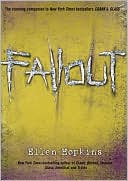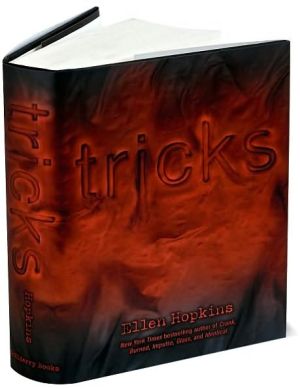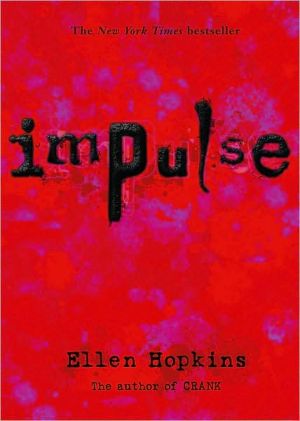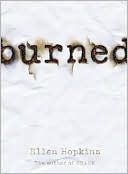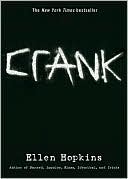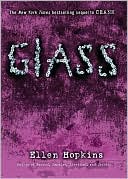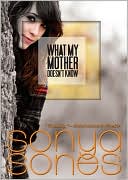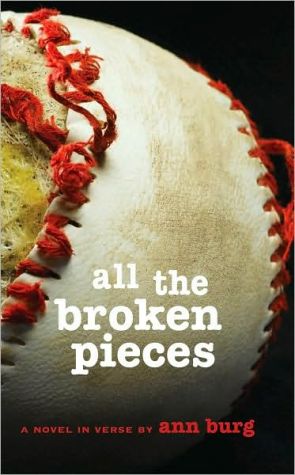True Believer (Make Lemonade Trilogy #2)
LaVaughn is fifteen now, and she's still fiercely determined to go to college. But that's the only thing she's sure about. Loyalty to her father bubbles up as her mother grows closer to a new man. The two girls she used to do everything with have chosen a path LaVaughn wants no part of. And then there's Jody. LaVaughn can't believe how gorgeous he is...or how confusing. He acts like he's in love with her, but is he?\ \ \ Living in the inner city amidst guns and...
Search in google:
We have a multitude of obstacles to overcome here.We’ll begin. When LaVaughn was little, the obstacles in her life didn’t seem so bad. If she had a fight with Myrtle or Annie, it would never last long. If she was mad at her mother, they made up by bedtime. School was simple. Boys were buddies. Everything made sense. But LaVaughn is fifteen and the obstacles aren’t going away anymore. Big questions separate her from her friends. Her mother is distracted by a new man. School could slip away from her so easily. And the boy who’s a miracle in her life acts just as if he’s in love with her. Only he’s not in love with her. Returning to the characters and language she explored so profoundly in Make Lemonade, Virginia Euwer Wolff rises to the occasion in this astonishing second of three novels about LaVaughn, her family, and her community.Publishers WeeklyEight years after the publication of her groundbreaking Make Lemonade, Wolff has surpassed herself with this sequel. LaVaughn once again narrates in blank verse, but turns from Jolly's story (the unwed mother for whom she babysat) to her own. Characters who stood on the periphery in Make Lemonade come to the fore here, especially LaVaughn's mother and LaVaughn's two best friends, Myrtle and Annie. Opening as the heroine embarks on 10th grade, the novel immediately introduces one of the pivotal issues of puberty: "Me and Myrtle & Annie,/ we all want to save our bodies for our right husband/ when he comes along./.../ There is several ways to do this saving." Myrtle and Annie opt for "Cross Your Legs for Jesus," a religious group with a narrowly prescribed outline for getting into heaven. With her characteristic intuition and wisdom, LaVaughn decides against this path ("It seems like a good idea at first./ But it doesn't feel right/ when I think about it"), and thus begins her solo journey to her own idea of faith. Along the way, the protagonist continues working toward college (with the support of her mother and some model teachers), falls in love, makes new friends and finds a vocation. With delicacy and sensitivity, Wolff examines the tensions that grow out of LaVaughn's decision to improve herself while leaving others behind, her choice to forgive in the face of Myrtle and Annie's intolerance, and her ability to trust despite a dangerous world. In delving into LaVaughn's life, Wolff unmasks the secret thoughts adolescents hold sacred and, in so doing, lets her readers know they are not alone. Ages 12-up. (Feb.) Copyright 2000 Cahners Business Information.
1.\ My name is LaVaughn and I am 15.\ When a little kid draws a picture\ it is all a big face\ and some arms stuck on.\ That's their life.\ Well, then:\ You get older\ and you are a whole mess of things,\ new thoughts, sorry feelings,\ big plans, enormous doubts,\ going along hoping and getting disappointed,\ over and over again,\ no wonder I don't recognize\ my little crayon picture.\ It appears to be me\ and it is\ and it is not.\ 2.\ In the sex class we have to take by school law\ where they showed condoms and scared us about AIDS,\ they said, "Sexuality is the most confusing thing\ about being a teenager." I am sure\ this is correct\ because I strained my ears to hear over the racket\ of kids making a joke of the class,\ waving condoms on their fingers,\ hooting.\ And also because the sex teacher said it four times.\ But me and my friends Myrtle & Annie\ say it don't have to be the most confusing.\ There is math and other hard subjects too\ and street murders right near your block,\ even people you loved.\ And also torment of being let down\ by what you counted on.\ Me and Myrtle & Annie could say 1,000 examples.\ The thing to do is stay virgin.\ Then you don't have to wonder if you're pregnant\ or worry about being a bad person\ or decide whether to have the baby or abort it\ or wonder for the rest of your life\ if the baby is healthy\ in her adopted home. Or his.\ Me and Myrtle & Annie,\ we all want to save our bodies for our right husband\ when he comes along.\ There is several ways to do this saving.\ One is be snarly nasty to boys and not be their friend\ and they will stay away from you.\ But there is this girl everybody knows about,\ she hated boys and men of all kinds\ and one day she got raped just by going\ to the discount store, she is a wreck you pity,\ she slides her back along the locker doors in the hallways\ and has lurching eyes.\ Another way is Cross Your Legs for Jesus.\ This is the club Myrtle joined, and Annie will probably too.\ For the club you memorize Bible verses,\ and in the club you will go to Hell if you have unmarried sex.\ The club has many retreats and parties and fun picnics.\ Boys are in it too.\ The third way is never go anywhere by yourself.\ I believe in my heart each of these 3 are not for me.\ Be nasty to all boys and men?\ No. I like them.\ And it didn't work for that poor girl.\ And Cross Your Legs for Jesus seems like a good idea at first.\ But it doesn't feel right\ when I think about it.\ Does Jesus want that droopy raped girl to go to Hell?\ And number 3 is trouble from beginning to end.\ Never go anywhere alone? Sometimes I like to be alone.\ To think.\ I don't know how you recognize your own special husband\ when he comes along. Will he look\ totally different? Or does he look like everybody else\ and you're the only one to recognize him?\ I sure would like to get kissed.\ How that would feel on my mouth.\ How different I would be after,\ a changed climate down in my insides.\ 3.\ And another thing.\ My mom sat me down last night and she said,\ "Verna LaVaughn. You remember your college plans."\ This was not a question. She used both my names.\ "Sure, I remember." This is too offhand for her\ and she snaps at me about my tone of voice.\ She has radar,\ can feel rudeness coming, also sarcasm\ before they start.\ Also fake tiredness when you don't want to answer.\ With my mom you are alert at attention or nothing.\ "Yes, I remember my college plans," I say, polite.\ "Well, you make sure you do.\ Because I got a better job offer, I'll quit this mere little job\ if you're sure you remember about college.\ This job pays more,\ I can put more in your college account.\ It has better health benefits and dental."\ And she says she'll have night meetings,\ and for sure more paperwork. "I have to know," she says.\ "Will you make me proud I took this big jump?\ "Put yourself in my place, LaVaughn.\ More of me goes to the office, less of me can stay home.\ You understand?"\ Sure, I'm happy for her new job.\ This might mean I'd have more room to myself\ without her standing over me\ watching my own personal judgment.\ "I understand," I say back.\ "I don't think so.\ You know what this means?\ This means you can't do anything\ real\ dumb,\ LaVaughn."\ She looks at me with her face full of rules.\ I know the rules, have always known them.\ Go to school, do homework,\ have safe friends,\ have a job after school,\ don't make bad decisions.\ When I baby-sat for that Jolly\ with her two babies and no husband\ was a bad decision my mom thought,\ but I come out of that with no harm done,\ and I also helped Jolly get up\ after what her life done to her.\ And those little kids were so cute, I miss them still.\ "'Cause I can't pull you out of any mess, Verna LaVaughn,"\ my mom aims her eyebrows at me.\ "You got your work to do,\ I got mine. There's only just so much of me\ to go around."\ At this moment I love my mom real much\ knowing so much of her has been going around me\ my whole life.\ Then in the next minute she says,\ "I seen many youngsters change their minds,\ forgetting their life plan\ or they pretend they never had one.\ You need a long memory, LaVaughn.\ You can't go forgetting the minute it gets too hard."\ I say I know that.\ We agree I still mean it about college.\ I tell her I appreciate her.\ And I truly believe\ those things are both completely true.\ And three hours go by till she starts again.\ I'm in bed, still awake.\ She comes in and sits on the edge\ and she says,\ "And another thing.\ "You know what would stop your college plans\ for sure, LaVaughn."\ This too is not a question.\ I'm supposed to know. I can think of many things,\ money first of all.\ Or a deadly accident on the street, her getting fired,\ me getting low grades,\ all the disasters that happen in many varieties\ to people just trying to go along.\ "A baby," she says.\ "Oh!" I say, in huge surprise. "Not me. For sure. Promise."\ "So you say now," she says.\ "Promises are easy to break," she says.\ "People get confused.\ You can't do that, LaVaughn.\ You can not let yourself get confused.\ You know what I mean?"\ "Mom," I say, "I'm not confused."\ "People are confusable," she goes on.\ "You keep your eyes on college.\ I tell you this, LaVaughn:\ What's down there between a person's legs\ gets them into more trouble than anything."\ This is embarrassing. I don't want to hear her opinion.\ "I'm counting on you like I never counted on anybody\ since your dad was here."\ I tell her she can count on me.\ We say Goodnight\ and I am relieved my mom is out of my own private room\ with her depending and counting on\ and warnings.\ I have hopes for life and some love too\ and surprises.\ After a long time I go to sleep\ and dream of dancing\ with somebody, nobody clear, just vague\ with his arms around me.\ And he likes the real LaVaughn in me.\ 4.\ I am lucky,\ born under a good star, maybe.\ Of the bad things that happened\ the worst, top of the list of all time, is my dad got killed\ when I was so little.\ It is a burden like they say.\ And nobody, my mom nor nobody\ knows how this private burden weights on me.\ But at least I had a dad. And he loved me gigantically.\ In the picture on my bedroom wall,\ holding a little version of me in his arms,\ we are in matching baseball caps,\ that is a happy man grinning.\ And my friends. I am lucky in them.\ Myrtle & Annie, they were with me\ all the way through.\ Myrtle and me were helpful to Annie all we could be\ when she had that divorce in second grade,\ and then the second divorce too,\ in sixth.\ And the way Myrtle's family takes drugs is a crime.\ Very often she did not even want to go home.\ Till her father went to rehab\ when we were in eighth grade,\ he is in there again now, too.\ He promised Myrtle he would make it this time.\ Still, she holds her breath.\ Me and Annie are sympathetic.\ But sympathy won't make her life different.\ My friend Jolly got things complicated last year,\ Myrtle & Annie rolled their eyes\ about her. Jolly couldn't help it. I kept telling them.\ It wasn't her fault she was pregnant\ before she was old enough to see straight.\ It was a dangerous world she got born into\ with hardly never a chance for niceness in her life.\ But when Myrtle & Annie got cleaning jobs at the church\ and got invited into the Jesus club there,\ first Myrtle, then Annie,\ they acted like Jolly was dirt down beneath them.\ Then Jolly ended up a slight hero\ so they were wrong about her,\ even if they never said so.\ But they are still loyal to me for life, and me to them.\ We don't have to say it in words, it just is.\ It's true the pavement around here is filthy from side to side,\ the alleys reek\ and they are full of deadly events that could happen any minute.\ High school students shoot their classmates\ and if you even take one glance at the science of the world\ you would want to never get out of bed in the morning,\ birds and beasts are going extinct,\ the rivers are poison, the fish are dying,\ there is dangerous rain.\ But I have these friends,\ and my mom even took a harder job so I can get out of here\ when I'm grown up.\ And my hope is strong like an athlete.\ Every morning when we walk through the metal detectors\ to get into school\ I know in my heart it may feel like a day of just waiting in lines\ and hearing bells ring\ and watching teachers try to keep order\ among those wrongdoers in the classes.\ But.\ It is an important day\ of dues-paying so I can go to college and be out of here.\ I'll pay.\ 5.\ And I am lucky to have a room of my own,\ instead of sleeping on a fold-out\ like Annie in her house.\ My room is my private territory\ complete with my special ceiling design.\ My ceiling above my bed is cracked like a tree hanging over,\ and last summer when I was restless one rainy day\ I painted branches on,\ and put a bird nest up there too\ and little baby birds peeking out\ with their eensy skinny feathers\ and their all-mouth look like on a science show.\ I used my watercolors from way back in childhood,\ my 10th birthday present from the aunts.\ The set has six different greens\ and enough odd hues and shades\ to do branches and a good tree trunk.\ I am quite proud of my painting.\ Well, my mom came home and saw the wall and ceiling\ and her mouth went into shock\ as a rent-payer.\ "Oh, LaVaughn, look what you did," she says,\ "Oh, no," she says, and "Oh, no," again,\ while she catches her breath and thinks.\ Then she calmed down.\ She stood on different spots in my room,\ at the corner of my desk,\ and by the closet door,\ and over by the wastebasket.\ She climbed on my chair and took a look up close,\ and she laid down on my bed to see it from there,\ never saying a word, just shifting around and looking.\ At the end of this short tour of my room which is not large\ her face got patienter\ and she said, "LaVaughn, that's nice,\ that's so nice. Oh, LaVaughn, that's real, real nice."\ And she says in a whisper,\ "Your dad would be proud."\ It made the lump come in my throat\ that came before lots of times\ when I'm wondering how it would feel with his arms around me\ like before when I was so little.\ Sometimes I think I can almost make the feeling.\ And then it disappears.\ I tell my mom thanks.\ 6.\ Myrtle & Annie sing their club song for me before gym.\ "I gave my heart to Jesus,\ God's kingdom will endure.\ He gives to me my energy,\ Jesus keeps me pure."\ Then the chorus goes "Cross your legs for Jesus," and it repeats.\ They say it sounds better with guitar and drums.\ They are obvious about how unsaved I am.\ They have new "JESUS LOVES YOU" shoelaces, bright gold.\ We do our warm-ups,\ then we go through the volleyball formations,\ we holler and huff and jump like we are taught,\ and it might look like old times\ among Myrtle & Annie and me, but it's not.\ "You're missing out on the miracle, LaVaughn,"\ says Myrtle, in the showers.\ I am not innocent enough to ask what miracle she means.\ It is the miracle of being saved by God from being a sinner.\ I didn't want to argue.\ I imagine there is a God out there, or a Something.\ Something to get the whole thing spinning along\ way back there before there was anything\ to even have a shape to it.\ Myrtle & Annie and me went all through this subject before.\ But now they have new news.\ Myrtle & Annie say all Muslims and Jews and Hindus\ and other religions will go to Hell\ along with criminals and sexual teenagers\ and all tribes of foreign lands\ that have not come to Jesus and the Bible\ which they say God wrote.\ They don't explain how God came out of the sky\ and wrote down words. "You just don't get it, LaVaughn."\ It is the Joyful Universal Church of Jesus\ that tells them these things.\ They are right: I don't get it.\ I personally would like to know how God let my dad die.\ And why hasn't God made Myrtle's father\ get well from drugs yet?\ That would be a miracle.\ Me and Myrtle share a bottle of shampoo like always\ and I look back and forth at them\ as we dry ourselves and put on our clothes.\ With their club coming between our friendship\ I want to say, "Yes! I'll be in your club!"\ But I don't do it,\ it doesn't feel right.\ I don't think that is the job of Jesus, to keep me pure.\ And I don't mean to be mean to Jesus in my thoughts,\ that little baby born in a manger.\ But I don't get how he hates so many millions of people\ and sends them down to Hell.\ So as we are getting dressed\ and I run Annie's comb\ down the back of her hair like always\ for her exactly equal braids she wants,\ I am wondering is this the last time I will ever have\ Annie's comb in my hand, going down her hair.\ I keep my eyes on the back of Annie's head,\ bisecting her hair precisely.\ And my skin goes shivery for a moment.\ I want to join with them\ to have it be like the old times we had,\ but there's something holds me back.\ If there is a God and Jesus,\ is my dad in their heaven up there?\ And if there isn't,\ where is he?\ Can he see me?\ 7.\ And then the biggest surprise:\ Suddenly here comes Jody back again, changing everything.\ He lived here a long time ago, then he left\ and now he comes back, an astonishment in the elevator.\ When we were little we played\ kick-the-can a kazillion times.\ We went to each other's messy little birthdays\ and spilled ice cream\ and I remember like a movie\ how I stole his party hat one time,\ it was blue and I was grabby.\ Jody and me\ were the only ones that got punished\ when all of us kids on our side of the building\ were mean to a person in a wheelchair. Some of the big kids\ wheeled her very fast over big gashes in the sidewalk.\ Us little ones just watched, but that was bad enough.\ My mom was mad. Jody's too.\ "You like to stare at people that had bad luck, LaVaughn?\ Verna LaVaughn, you like to stare\ at that poor woman being tormented?\ What else you like to do, LaVaughn? Huh?"\ I told her I like to color in coloring books.\ She took away every coloring book I had,\ and the crayons and markers too\ for a whole month. "That will teach you," she said.\ She put them away in her closet\ and I couldn't color till she took them out again.\ Jody was not allowed to ride his bike for a week.\ Nobody else got punished.\ Jody's mom and my mom taught us cards,\ we played Hearts in their apartment and Old Maid.\ And Double Solitaire.\ Our mothers traded keys, one for each of us,\ hanging on a string\ so us little ones would have a safe place\ to go in emergencies.\ Even with self-defense classes in the building\ you still need a place to go in danger.\ It is a rule of the Tenant Council.\ Jody and me each used our keys on strings\ once way back then. Trying them out.\ He came to our house\ when I was just learning to make a peanut butter sandwich.\ I made two of them, he ate most of his.\ And I used the key in their lock one time.\ He showed me his tropical fish in a tank,\ he knew the big long names of those bright-colored swimmers.\ We traded comic books and never gave them back.\ Once Jody and me played cards for 2 days\ when it snowed and there was no school.\ And then they moved away.\ And now they're back again.\ And this is such a weird miracle about my little childhood pal:\ He is suddenly beautiful.\ In the elevator, it's all I can do to say his name.\ "Jody?" I say. I steady myself against the elevator wall\ in case it is not him. And because he is too gorgeous\ to look at head-on.\ He doesn't remember me\ and then he does. "You were good at kick-the-can," he said.\ "Really?" I said.\ "Yeah, you had good legs," says this brand-new old person.\ "Thanks," I say. "Do you still have fish in a tank?"\ I'm amazed at my normal sound,\ talking so calm to such beauty.\ He could be in movies,\ the way the parts of his face go together.\ His mouth moves and words come out, Yes,\ he still has fish, his hand goes to the elevator button,\ I follow it, the wrist, thumb, index finger, a button pushes,\ his arm goes back where it was.\ My chest is so full of heartbeats it jolts my thinking.\ Somewhere he was getting to be a perfect, handsome person\ while I was only going through the years.\ In the elevator maybe I asked him where he has been,\ maybe not.\ His face is standing there looking straight into mine,\ the shape of his mouth, oh,\ I can't imagine I ever saw such a boy before\ and yet it is still the face of Jody from back then.\ I get out of the elevator at my floor\ and I lean on the wall,\ my heart too loud for comfort\ and my brain not so level either.\ 8.\ I get my whole breath back\ by the time my mom comes home.\ She is not struck dumb by the news.\ She reminds me what I was not paying attention to\ when I was a kid, the reason why they left:\ Jody's mom moved them away\ to try to get Jody a better chance in life.\ "That woman, she's exhausted, she's drained,\ cleaning dirty houses day in, day out,\ Jody's all she's got."\ I make comparison with Jody's mom and mine\ but it is not the same at all. My mom never\ cleaned other people's houses.\ She would not live such a beat down life,\ she just would not.\ "Well, they tried, she couldn't pay that higher rent,\ she got farther behind all the time,\ and...." My mom plunks her paperwork on the counter,\ reaches over and rubs a sponge around the sink,\ lets her breath out in a huff.\ "...and here they are, back again."\ She says in her emphasizing voice:\ "She was the first one when your dad died.\ The very first one.\ She come up here with a casserole,\ she brought Jody along,\ she stayed with me the whole night."\ That is all a fog to me. Maybe I didn't notice him,\ so confused as I was.\ I'll never know how my mom made it through that time.\ "You be nice to Jody, LaVaughn.\ They don't have it easy."\ So that's the way it is about Jody.\ And she's telling me to be nice to him.\ Does she not even know what Jody looks like?\ I look at her flat as a plate, no expression.\ I say Sure, I'll do that.\ Jody's back just in time to start the new school year.\ My heart is clunking.\ Copyright © 2001 by Virginia Euwer Wolff
\ From Barnes & NobleThe Barnes & Noble Review\ Written in poignant and powerful blank verse, this National Book Award winner from Virginia Euwer Wolffe revisits the characters Wolffe first introduced in Make Lemonade. Now, LaVaughn, a 15-year-old teen who's determined to break free from her constricting inner city neighborhood, is starting tenth grade...and grappling with the distractions of first love, drifting apart from her lifelong friends, and realizing her intense desire to go to college. \ Living with her single mother amid poverty and violence, LaVaughn knows that the only way to "make it" is to escape to college. And to get there, she studies hard, heeds her mother's warnings, and tries to be strong. Several teachers recognize promise in LaVaughn, and she is placed in a more advanced science class, as well as an after-school program to improve her speech. She also gets a job at a children's hospital, which ultimately instills in her a dream of becoming a nurse.\ LaVaughn is growing up -- and along the way, she experiences a life-altering change when a boy named Jody moves back into her neighborhood. Once LaVaughn's childhood pal, Jody is now "suddenly beautiful" -- and LaVaughn can't stop thinking about him. However, her all-consuming love is unrequited because Jody is experiencing some painful changes himself -- and his actions will affect LaVaughn in many powerful ways.\ The second novel in a proposed trilogy, True Believer is both a brilliant coming-of-age story and a demonstration of one young woman's courage to succeed against the odds. Both heartbreaking and redemptive, LaVaughn's story is a testament to readers that they should never lose hope -- or stop dreaming. A richly developed character whom readers will both admire and empathize with, LaVaughn thrives against the odds; she lives the words her teacher instructs her class to repeat: "We will rise to the occasion, which is life." (Jamie Levine)\ \ \ \ \ \ Publishers Weekly"Eight years after the publication of her groundbreaking Make Lemonade, Wolff surpasses herself with this sequel," said PW in our Best Books citation. "In delving into LaVaughn's life, the author unmasks the secret thoughts adolescents hold sacred and lets her readers know they are not alone." Ages 12-up. (Oct.)\ \ \ Publishers Weekly\ - Publisher's Weekly\ Eight years after the publication of her groundbreaking Make Lemonade, Wolff has surpassed herself with this sequel. LaVaughn once again narrates in blank verse, but turns from Jolly's story (the unwed mother for whom she babysat) to her own. Characters who stood on the periphery in Make Lemonade come to the fore here, especially LaVaughn's mother and LaVaughn's two best friends, Myrtle and Annie. Opening as the heroine embarks on 10th grade, the novel immediately introduces one of the pivotal issues of puberty: "Me and Myrtle & Annie,/ we all want to save our bodies for our right husband/ when he comes along./.../ There is several ways to do this saving." Myrtle and Annie opt for "Cross Your Legs for Jesus," a religious group with a narrowly prescribed outline for getting into heaven. With her characteristic intuition and wisdom, LaVaughn decides against this path ("It seems like a good idea at first./ But it doesn't feel right/ when I think about it"), and thus begins her solo journey to her own idea of faith. Along the way, the protagonist continues working toward college (with the support of her mother and some model teachers), falls in love, makes new friends and finds a vocation. With delicacy and sensitivity, Wolff examines the tensions that grow out of LaVaughn's decision to improve herself while leaving others behind, her choice to forgive in the face of Myrtle and Annie's intolerance, and her ability to trust despite a dangerous world. In delving into LaVaughn's life, Wolff unmasks the secret thoughts adolescents hold sacred and, in so doing, lets her readers know they are not alone. Ages 12-up. (Feb.) Copyright 2000 Cahners Business Information.\ \ \ \ \ Children's LiteratureVirginia Euwer Wolff's book is the second in a trilogy and the winner of this year's Young Adult National Book Award. Like her award-winning Making Lemonade, True Believer is written in verse. The poetic form fits her heroine, LaVaughn--a wistful, pensive young black girl, who has much to puzzle out now that she's fifteen and dealing with adolescent worries on top of those brought by poverty. The book's free verse also reflects the language patterns of LaVaughn's neighborhood, and Wolff's powerful poetry balances the ugly truths LaVaughn faces in an environment where "... the pavement around here is filthy from side to side,/the alleys reek/and they are full of deadly events that could happen any minute." LaVaughn hits adolescence hard. Her friends have deserted her for the "Cross Your Legs for Jesus" club, she struggles in accelerated classes, she falls in love for the first time with disastrous results and keeps a secret that shames her. Concerns about sexuality and feelings of hopelessness threaten her college "life plan" and her mama cautions, "You need a long memory, LaVaughn. /You can't go forgetting the minute it gets too hard." There are many people who love LaVaughn and at her sixteenth birthday party, LaVaughn finally accepts their love and is then able to accept her changes and admire her strength and resilience. \ —Susie Wilde\ \ \ \ \ VOYAFifteen-year-old Verna LaVaughn deals with a variety of problems, including how to keep her friends, how to act toward a boy she likes, and how to behave when her single mother dates a man. Verna is a character first introduced by Wolff in Make Lemonade (Henry Holt, 1993/VOYA October 1993), in which Verna helped a teenaged mother who needed day care for her two small children. In this second book, Verna struggles to stay friends with the girls she has known forever, especially when they join a church group that Verna thinks is too strict. When Jody, a boy who used to live in the neighborhood, moves back, Verna discovers that she has feelings for him. They even go to a dance together and have a great time. Some time later, however, when she goes to his apartment to take him some cookies, she sees him standing by his fish tank and realizes that he is kissing another boy. She is so shocked that she drops the cookies and runs. As if all this confusion were not enough, Verna is also having trouble in school. She and her biology lab partner are not getting along, and consequently, her grades are suffering. Although the story is outstanding, the real tour de force is the writing style. Wolff writes in blank verse, and as Verna tells her story, the reader moves in lockstep with her wherever she goes, laughing and crying, celebrating and worrying, wondering and deciding. It is an outstanding continuing portrait of Verna LaVaughn. VOYA CODES: 5Q 4P M J S (Hard to imagine it being any better written; Broad general YA appeal; Middle School, defined as grades 6 to 8; Junior High, defined as grades 7 to 9; Senior High, defined as grades 10 to 12). 2000, Atheneum/S & S, 272p, Ages 12 to 18.Reviewer: Sue Krumbein SOURCE: VOYA, April 2001 (Vol. 24, No.1)\ \ \ \ \ From The CriticsEight years ago readers fell in love with the spunk, determination, compassion of fourteen-year old La Vaughn in Virginia Euwer Wolff's Make Lemonade. Now fifteen, La Vaughn returns in True Believer as she continues to pursue her goal of going to college someday. Despite the poverty of her neighborhood and school, LaVaughn believes she is "lucky, born under a star, maybe," but she finds out that growing up takes more than luck. LaVaughn's compassion, beliefs, and intelligence are tested at school, in her changing relationship with childhood friends Annie and Myrtle, and in her new feelings for Jody, a boy who has returned to the housing project where LaVaughn and her mother live. True Believer explores issues relevant to today's teens in an honest and sensitive manner. Virginia Euwer Wolff gives readers a moving, beautifully written poignant story, well worth the eight year wait — a story that makes us true believers in LaVaughn and in the tenacity and resiliency of her spirit. Genre: Coming of Age. 2001, Atheneum Books for Young Readers, 264 pp., $18.00. Ages 12 up. Reviewer: Joan Kopperud; Moorhead, Minnesota\ \ \ \ \ From The CriticsVirginia Euwer Wolff's True Believer is a powerful book. The second in what's to be a trilogy about LaVaughan, a poor girl in an even poorer city, it's a brutally honest, completely unromanticized look at several difficult months in her life. Yet it's also filled with resiliency and hope. Characters and situations from the first book, Make Lemonade (Holt, 1993), reappear here, and like that book, True Believer's written in a free-verse, stream-of-consciousness style. LaVaughan, now fifteen, is still realistic, still compassionate, and still desperate to go to college. She's always known the rules, as laid down by her mother: "Go to school, do homework, have safe friends, have a job after school, don't make bad decisions." But suddenly too many things are interfering with her dream. LaVaughan's best friends are fighting with her, her mother's dating a man who's talking of marriage, and LaVaughan herself is achingly, desperately in love—with Jody, a boy who doesn't love her. Nothing makes sense anymore, now that she's older: "You get older and you are a whole mess of things, new thoughts, sorry feelings, big plans, enormous doubts, going along hoping and getting disappointed, over and over again." And there are questions. LaVaughan has hundreds of questions. Most of them involve teenage concerns: Am I pretty enough? What does it feel like to be kissed? Why do people change? Almost lost in the background is the reality of living in a neighborhood where school shootings, substandard housing, and people who've given up hope are way too common. LaVaughan's break with her friends comes when they join a purity group with the rather improbable name of Cross Your Legs For Jesus. Myrtle and Annie'schurch is similarly named, and the Christians there are loveless bigots. Yes, it's a one-note view of religion, but LaVaughan's feeling that God simply can't be as vengeful as her friends insist helps her sort through her own confusion about God. It also points out something she's really not ready to admit: she, Myrtle, and Annie were growing apart anyway. LaVaughan's a smart kid and a good student, a fact the school administration recognizes. They enroll her in special grammar and Biology classes, which introduce her to new friends and, more important, to a teacher who gives her confidence, gives her a purpose, and helps her realize she has the power to change her life. It's not a painless realization—nothing in LaVaughan's life is easy—and her relationships with Jody, Myrtle, and Annie get worse before they get better. But LaVaughan survives. By book's end, she's enrolled in a summer science class, has learned a bit about understanding the people who've disappointed her, and is squarely prepared for the next set of problems life hands her. True Believer is an intimate, candid look at the thoughts and insecurities of a teenager, but it's also a portrait of a girl determined to make the best of what life offers her. True Believer, like LaVaughan herself, won't soon be forgotten. 2001, Atheneum, 272 pages, \ — Rosemarie DiCristo\ \ \ \ \ KLIATTIt's a year or so after the events in Make Lemonade, and LaVaughn is in a special program to encourage students to prepare for college, working hard in school and focused on her future. The distractions are many, of course. The friends she has had since Head Start days have joined a fundamentalist church and are excluding LaVaughn from their lives since she isn't comfortable with their new religious beliefs. Her mother has a new boyfriend, Lester, who stays with them a lot and talks about moving them into a house with a yard, in a decent school system. But the biggest distraction of all is LaVaughn's crush on Jody, a boy she has known a long time, who recently moved back into their apartment building. She daydreams about him, gets up the nerve to ask him to a school dance, but wonders what is wrong when their first kiss is a flop. Jody is obviously a nice young man who cares about LaVaughn sort of like a brother—Jody wonders why they can't have more. Their mothers have exchanged keys as a safety precaution, and when LaVaughn secretly enters Jody's home to leave him some cookies, she finds him kissing another boy and realizes the truth about why he isn't in love with her. Into this mix come the teenage mother and her little children featured in Make Lemonade. The children seem to be thriving in a special program, but their mother is struggling with school. There is a wonderful Thanksgiving described when LaVaughn's mother finds a place for them all in their little apartment. Wolff tells LaVaughn's story in the same blank verse she used in the previous book, which works well to propel the narrative forward, to express LaVaughn's emotions—her love, fears, jealousy, compassion,ambition—with the poetic images that capture a reader's heart and mind. True Believer is ultimately about beliefs—about what really matters in a person's life, about hope for the future, about love and caring. Readers, whether they share LaVaughn's material struggles or not, will get right into her life and see how much courage she and her mother have to hope for a better life, and to work diligently to realize that hope. (Sequel to Make Lemonade) KLIATT Codes: JS*—Exceptional book, recommended for junior and senior high school students. 2000, Simon & Schuster/Atheneum, 264p, $18.00. Ages 13 to 18. Reviewer: Claire Rosser; January 2001 (Vol. 35 No. 1)\ \ \ \ \ School Library JournalGr 6 Up-A sequel to Virginia Euwer Wolff's Make Lemonade (Holt, 1993), Heather Alicia Simms presents LaVaughn's first person narrative in True Believer (Atheneum, 2001). LaVaughn, now 15, and her mother have weathered hard times, and LaVaughn recognizes just how much she owes her mother. Their mutual dream, for LaVaughn to go to college and leave their dismal inner city neighborhood for good, gives a continual focus to the teen and to listeners. Simms' narration inevitably gives a more prose-like feel to the story which in print looks and feels more poetic. But that is more than balanced out by the qualities Simms brings to the story. Her voice comes across very believably, and since every other character speaks through LaVaughn, Simms uses only slight but effective variations to indicate them. Her on-target reading focuses on this thoughtful teenager who confronts genuine young adult heartaches and growing pains: losing touch with her closest girlhood friends, the meaning of God and religion in her life, her widowed mother's brush with a gold-digger, the surprising discovery that ends her first romantic attachment. The language of this occasionally gritty story resonates with truth, personal growth, and the vision of a better life. While there are some mature themes, they are handled very gently. Every teenager should have the opportunity to meet LaVaughn.-Jane Fenn, Corning-Painted Post West High School, NY Copyright 2003 Reed Business Information.\ \ \ \ \ Kirkus ReviewsWhen Wolff writes a book, it's an event. When she revisits LaVaughn, as she does in True Believer, it is a prodigious gift. This book stands alone, but includes a cameo appearance by the hapless Jolly (Make Lemonade, 1993). In the course of LaVaughn's seismic 15th year, she grapples with all the big questions of teen life: the drifting away of lifelong friends, setting life goals, falling in love with the wrong man, making sense of sexuality and abstinence, and questioning the existence of God. Or, as LaVaughn puts it, "My life is so swollen with things . . ." With wisdom, snap, and a touch of profound sadness, LaVaughn confronts her best friends' slipping away to "be all the property of Jesus," the deeply wounding discovery that the boy she loves is gay, and the acknowledgment of her own character flaws. She is accused of being "uppity" for her academic achievement, her refusal to join the "Cross your Legs for Jesus Club" and her disdain of a brilliant, shabby lab partner. With every aspect of her life in tatters, LaVaughn confides in her scrappy mother (also an uppity woman) and begins to "rise to the occasion which is life," bringing together the rich cast of characters who inhabit her world at a sweet-16 party. The urban setting, in which six children in LaVaughn's fourth-grade class have died violently, is effectively but unsensationally sketched. In economical blank verse of graceful simplicity, Wolff unerringly reveals the inner depths of her heroine. While LaVaughn feels isolated in her confusion about life, she is surrounded by adults (including demanding, mentoring teachers) who will not allow her to fail. This is a coming-of-age story with both bite andheart,which poses more questions than it answers but never runs out of hope. (Fiction. 12-16)\ \

